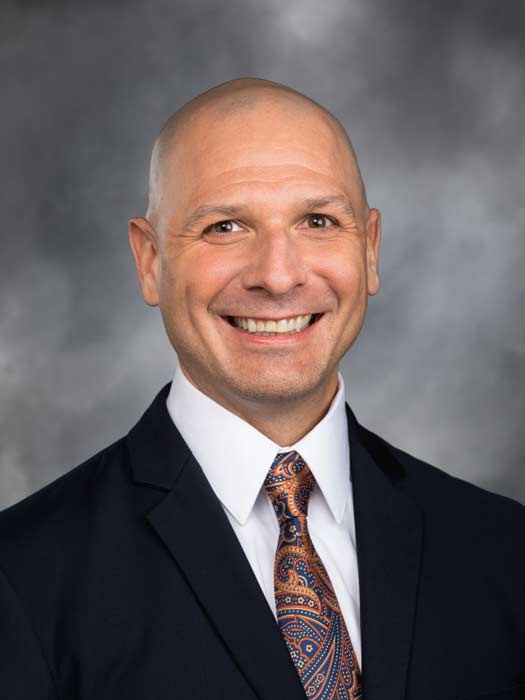
Some might look favorably at the unemployment rate hovering below 4%. However, it’s a different story for many businesses in the Southwest Washington experiencing workforce shortages, supply chain interruptions, and a rise in the cost of doing business.
The unemployment rate is the percentage of the labor force without a job. Unfortunately, the artificially low rate is influenced by the low labor participation rate, which remains around 62%. The labor force participation rate is an estimate of an economy’s active workforce.
An excessively low labor participation rate, like 62%, indicates many in the workforce gave up looking for a job, retired early, or decided they are financially better off not working. For some context, the Washington state unemployment rate is 3.9% and the labor participation rate in Washington state is 64%.
Many argue, and I happen to agree, that the low labor participation rate is primarily caused by newly created or enhanced government programs dis-incentivizing employment. New programs have historically impacted labor participation rates when government benefits outweigh wages.
New programs alone are not the sole cause of current employment problems. There are other contributing factors like the cost and availability of pre-school and daycare; cost of fuel; the continuing impact of vaccine mandates, early retirement of many boomers, and newly created taxes and fees lowering take-home wages.
To help reverse course, the government must control spending and stop passing spending bills like the “Inflation Reduction Act” that does not reduce inflation. Like every family or small business, the government must live within its means and resist the urge to create new programs built upon unsustainable revenue sources.
New and unsustainable state programs play a major role in an employer’s decision to create jobs and a person’s decision to seek employment. Ultimately, massive new spending bills on programs without sustainable revenue sources require tax increases on small businesses and working families (Long-Term Care Payroll Tax, Paid Family Medical Leave Tax, Capital Gains Income Tax, Gas Tax, Low Carbon Fuel Standards, Cap and Trade) or a diversion of funds from worthwhile investments (Public Works Board Trust Fund).
The past legislative session was filled with some major economic missed opportunities. The most obvious was squandering a $15 billion surplus without providing small businesses and working families with meaningful tax relief. Another was a new partisan ‘Puget Sound’ centric transportation budget.
There were also missed opportunities to expand our workforce through economic incentives that could benefit businesses and families.
For example, in Lewis County, Veterans account for over 12% of the population and a much higher percentage if their spouses are included. Last session, I introduced House Bill 1677, that would increase and expand employer tax incentives for hiring veterans and military families. Although the bipartisan legislation passed out of committee unanimously, it was not brought to the House Floor for a vote.
Although HB 1677 was a targeted incentive; generally, Washington must create an environment for businesses to be successful. That starts with reducing regressive taxes like the Business and Occupation (B & O) tax, eliminating overburdensome regulations, and expanding our workforce opportunities.
There were successes that helped move us in the right direction. A success from last legislative session was House Bill 1170, which directs the Department of Commerce to support the development of regionally tailored strategies to facilitate the development of manufacturing workforce across the state.
Another success was greater investments in career ready students, community colleges, and CTE. Currently, there is a significant labor market mismatch. The jobs available don’t match the skills of the applicants and vice versa. Apprenticeship programs, CTE investments, and community college programs help build and develop a workforce that meets the needs of our economy and businesses.
Lastly, there are few better investments than childcare, pre-school, and kindergarten readiness. Quality early learning programs prepare children for lifetime success and provide the opportunity for families to pursue education and employment opportunities. Supporting early learning programs and funding Early Learning Facilities (ELF) grants helps improve our children’s future success and provides opportunities to help lift families out of intergenerational poverty.
The 2023 Legislative Session will provide additional opportunities to invest in our workforce, create a successful small business environment, deliver working families meaningful economic relief, and invest in early learning and childcare opportunities. I will continue to work on these issues, because small businesses and working families can’t afford more missed opportunities.
Peter Abbarno is a State Representative in the 20th Legislative District and attorney with Althauser Rayan Abbarno, LLP in Centralia. Rep. Abbarno services on the House Environment and Energy Committee, House Civil Rights and Judiciary Committee, and as the assistant ranking member on the House Capital Budget Committee.


